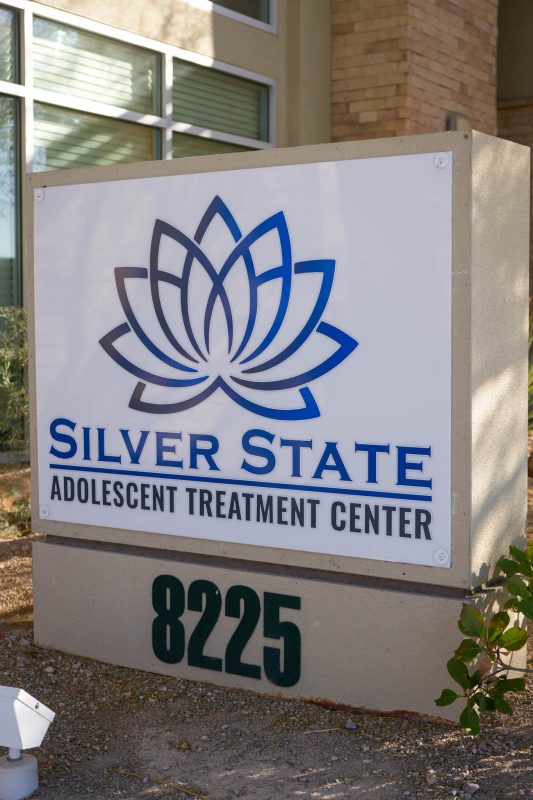Teen Binge Eating Disorder Residential Treatment Program
What We Do

Behavioral Therapy

Trauma-Informed Care

Holistic Treatment Therapy
Binge Eating Disorder Treatment Program for Teens
Binge Eating Disorder (BED) is the most common eating disorder in the U.S.—and it often begins during adolescence. Teens with BED frequently eat large amounts of food in a short period, often feeling out of control during the episode and overwhelmed with guilt afterward.
Unlike other eating disorders, binge eating doesn’t involve purging, but it can lead to serious emotional distress, low self-esteem, and health problems. Teens may binge as a way to manage stress, numb emotions, or escape overwhelming thoughts.
At Silver State, we help teens break this cycle. Our residential program focuses on both emotional recovery and behavioral change, giving teens the tools they need to understand their eating patterns and develop more compassionate, sustainable habits.


What is Binge Eating Disorder?
Binge Eating Disorder is characterized by frequent episodes of eating unusually large amounts of food, often quickly and in secret. These episodes are typically followed by feelings of guilt, disgust, or emotional distress—but without attempts to purge or compensate.
BED is not about “lack of willpower.” It’s a real mental health condition that often co-occurs with anxiety, depression, trauma, or body image struggles. Teens with binge eating disorder may feel stuck in a cycle of emotional pain and self-blame.
At Silver State, we help teens understand the root causes of their eating behavior and guide them toward long-term healing—not crash diets or quick fixes.
Signs and Symptoms of Binge Eating Disorder in Teens
Binge eating disorder can be hard to detect, especially since it often happens in secret. Common signs include:
Eating large quantities of food in a short time
Eating even when full or not hungry
Eating rapidly and in secret
Feeling guilt, shame, or distress after eating
Frequent dieting or talk about weight
Fluctuations in weight or digestive issues
Withdrawing from friends or activities
Emotional struggles tied to food and body image
Our residential program offers teens a safe place to explore these behaviors, understand their emotions, and begin healing.


Why Individualized Plans Matter for Teens with Binge Eating Disorder
Every teen’s experience with binge eating is different. Some may use food to cope with anxiety, others with trauma, loneliness, or boredom. That’s why we start with a comprehensive assessment to understand their emotional, behavioral, and physical health.
Treatment plans may include:
Individual and group therapy
Nutritional guidance without restriction
Medical monitoring (if needed)
Emotional regulation and mindfulness training
Family education and therapy
Movement and body image work
Aftercare and relapse prevention
We believe recovery starts with self-compassion—not shame. Our goal is to help teens build a new relationship with food, their bodies, and their inner world.
The Silver State Adolescent Approach
At Silver State, we approach binge eating disorder with empathy, expertise, and a deep commitment to teen mental health. We provide a structured and nurturing space where teens can understand why they binge—not just how to stop.
We don’t use restrictive diets or weigh-ins as punishment. Instead, we focus on emotional healing, intuitive eating, and helping teens build self-trust. Our trauma-informed and body-positive philosophy allows teens to feel seen, heard, and supported throughout their recovery.
Healing from binge eating is absolutely possible. And we’re here to help your teen take the first step toward lasting change.
Contact Silver State Adolescent Treatment
Please fill out the form to get started and someone from our admissions team will be reaching out to you shortly.

Teen Eating Disorders We Treat
FAQs About Teen Binge Eating Disorder (BED) Residential Treatment
Yes. Diagnosis depends on frequency and psychological impact, not just daily behavior.
Yes. While both involve binge eating, bulimia includes purging afterward, whereas BED does not.
It can stem from genetics, trauma, low self-esteem, dieting cycles, depression, or anxiety.
Eating large quantities quickly, eating in secret, food hoarding, guilt after eating, and weight fluctuations.
Yes. We offer a therapeutic academic program to help teens stay on track.
No. It’s a diagnosable and treatable mental health disorder.
Yes. With structured care, many teens experience long-term recovery.
Not at all. BED is not about control—it’s about emotional distress and coping.
Yes. Early treatment improves outcomes and prevents worsening symptoms.
Get Started
At Silver State Adolescent Treatment, we understand how important your questions and concerns are. For immediate assistance or detailed inquiries, please fill out our contact form so our team can respond quickly.
Our compassionate staff is here to provide personalized support tailored to your teen’s needs.
You can also reach us directly using the contact information below. Together, we’ll take the first steps toward your teen’s mental health and recovery.








